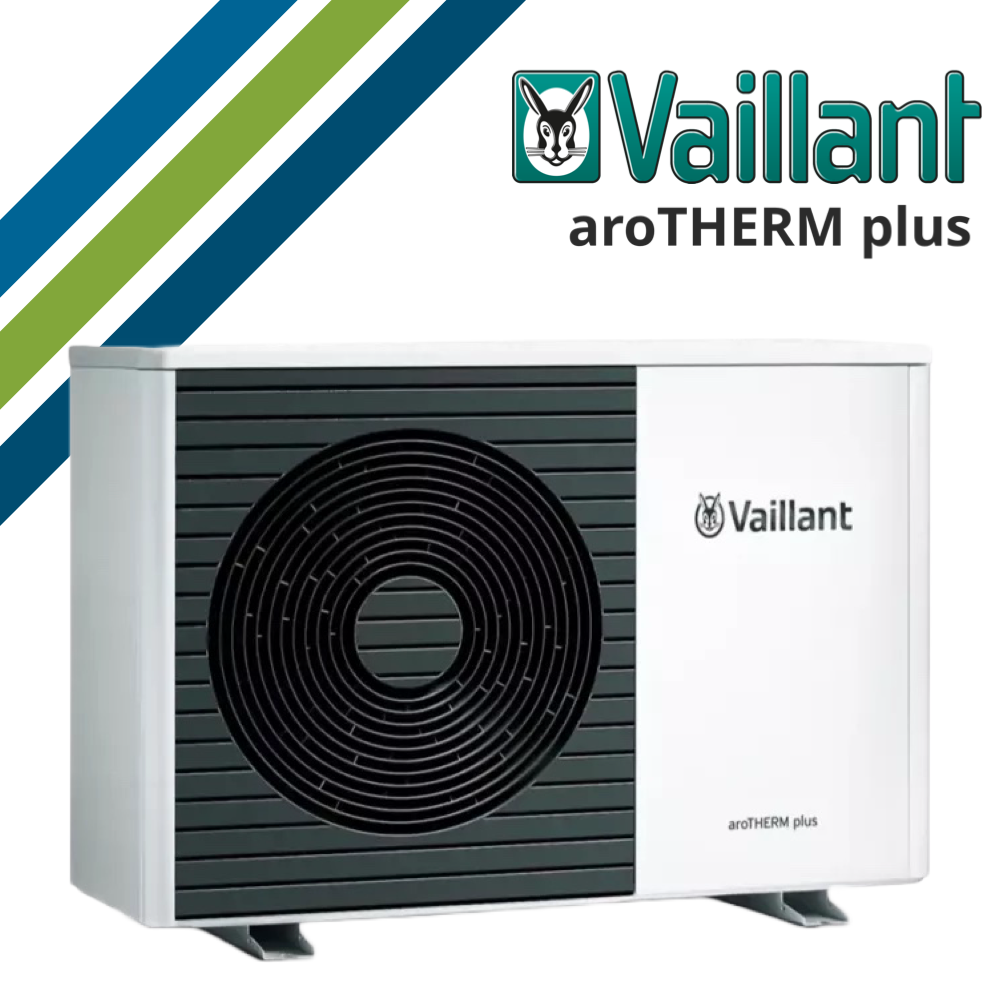
An air source heat pump is a smart and efficient way to heat your home and water—using energy from the air outside, even in freezing temperatures! It works a bit like a fridge, but in reverse. Instead of keeping things cool, it uses a fan, refrigerant circuit, and compressor to extact heat from the air and transfer it into your radiators, underfloor heating, and hot water system.
And the best part? It’s super efficient—delivering 3 to 5 times more heat energy than the electricity it uses. Most heat pumps keep working down to -15°C, which is much colder than the UK’s average winter temperature of 2 to 7°C. That’s why they’re already popular in places like Norway and Sweden.
They’re not new—heat pumps have been around for decades—but they’re now transforming the way we heat our homes, helping us move away from gas and towards a cleaner, more sustainable future.
Shrink your carbon footprint – Cut home‑heating CO₂ by up to 70 % versus an old gas boiler.
Tame your energy bills – Tap into cheaper off‑peak tariffs and pair the pump with rooftop solar for even bigger savings.
Future‑proof comfort – Heat pumps are the norm in chilly Norway and Sweden; the UK is catching up fast.
£7,500 Boiler Upgrade Scheme grant – Available in England & Wales until March 2026 (first‑come, first‑served).
Quiet & compact – Modern units hum along at 40–45 dB and need less space than you might think.
Electricity is pricier per kWh than gas, but an ASHP’s high efficiency shifts the maths in your favour. Example:
| Scenario | Annual heat demand | Typical gas boiler cost* | Typical ASHP cost** |
|---|---|---|---|
| 3‑bed semi, good insulation | 12,000 kWh | £950 | £820 |
| 4‑bed detached, average insulation | 18,000 kWh | £1,400 | £1,200 |
*Assumes 85 % efficient boiler at 7.9 p/kWh gas. **Assumes SCOP 3.2 at 28 p/kWh electricity. Accurate April 2025.
Switch to an Agile or Cosy tariff and schedule the heat pump to run harder when rates dip, and those figures look even better. Add solar PV and you can harvest truly low‑cost self‑generated kWh in spring and summer.
| Type | What it is | Pros | Cons |
|---|---|---|---|
| Monobloc | All components sealed in one outdoor unit. | Simpler install, fewer refrigerant joints, usually cheaper. | Slightly larger case, pipes carry water outdoors so need frost protection. |
| Split | Outdoor compressor + indoor hydrobox. | Slim outdoor unit, better frost resilience. | Higher install cost, F‑gas certification required, more joints to test. |
We’ll design whichever layout suits your property, budget and aesthetics.
Boiler Upgrade Scheme (BUS) – £7,500 off the upfront price if you own your home in England or Wales and have a valid EPC with no outstanding loft or cavity‑wall recommendations.
Home Energy Scotland Grant & Loan – Up to £15,000 combined support north of the border.
0 % VAT on heat‑pump hardware and installation until March 2027.
Green mortgages & EPC‑linked loans – Many lenders now offer reduced rates for low‑carbon retrofits.
Our team handles the paperwork so you don’t have to wrestle with forms.
Free phone consultation – We chat through your goals, property and budget.
On‑site heat‑loss survey – Precise room‑by‑room measurements to size the pump and emitters.
Design & proposal – You receive a fixed‑price quote, BUS grant guidance and predicted running costs.
Installation (typically 2–4 days) – Our Heat Geek Elite engineers fit the outdoor unit, indoor controls and cylinder swap (if needed). We keep hot water disruption to a minimum.
Commissioning & hand‑over – We test, balance and optimise flow temperatures, then show you how to drive the smart controls like a pro.
After‑care – Optional service plan, remote monitoring and out‑of‑hours support for total peace of mind.
An ASHP has fewer moving parts than a boiler and no combustion gases to vent. All it really needs is:
Annual visual check and refrigerant pressure test.
Quick clean of the coil and condensate drain.
Filter rinse and software‑update check.
With gentle care you can expect 15–20 years of service before major overhaul, roughly double the life of a typical combi boiler.
Pair your heat pump with a weather‑compensating controller or a smart tariff integrator (think Octopus Cosy or Intelligent) and you can pre‑heat the home when prices are low, then coast when the grid is pricey. If you’ve got solar PV, a diverter can prioritise surplus sunshine to your cylinder—free hot water, minimal grid draw.
Quick‑fire FAQs
Will I need bigger radiators? Often, yes—but not always. We’ll model each room and recommend slimline ‘low‑temp’ rads only where necessary.
How loud is it? About the same as a modern fridge—40‑45 dB at 1 m. Your bedroom is unlikely to hear it.
Does it work with under‑floor heating? Perfectly—that’s the most efficient emitter for a heat pump.
Can I keep my gas boiler as back‑up? You can. A hybrid system lets the heat pump do the heavy lifting while the boiler tops up on the coldest snaps.
What happens in a power cut? The pump pauses, just like a boiler with no electricity. We can advise on battery storage if resilience is key.
Air Source Heat Pumps (ASHPs) are a great energy-saving solution for your home. They pull heat from the outside air, even in cold weather, and bring it indoors to keep your space warm and cosy. They work efficiently in temperatures as low as -15°C, making them ideal for the UK’s chilly winters.
One of the big advantages of ASHPs is their efficiency. For every unit of electricity they use, they can generate up to three or four times that amount in heat. So not only will you stay warm, but you’ll also see savings on your energy bills.
To get the most out of an ASHP, it’s important that it’s installed correctly and that your home is well insulated. This ensures the system runs at its best, keeping you comfortable all year round.

£7500 government grant Now available!

Vaillant make a fantastic and extremely versatile unit with the same heating controls that the UK is familiar with from their boiler range.
We have many of these units out there performing brilliantly.

Viessmann are the pinnacle in German engineering and our heat pump manufacturer partner.
We are confident to say that you cannot get better than a Viessmann heat pump installation.

Registered Office Address:
Option Energy Solutions Ltd
9 Penlands Way
Steyning
West Sussex
BN44 3PN
Registered in England
Tel: 01903 814777